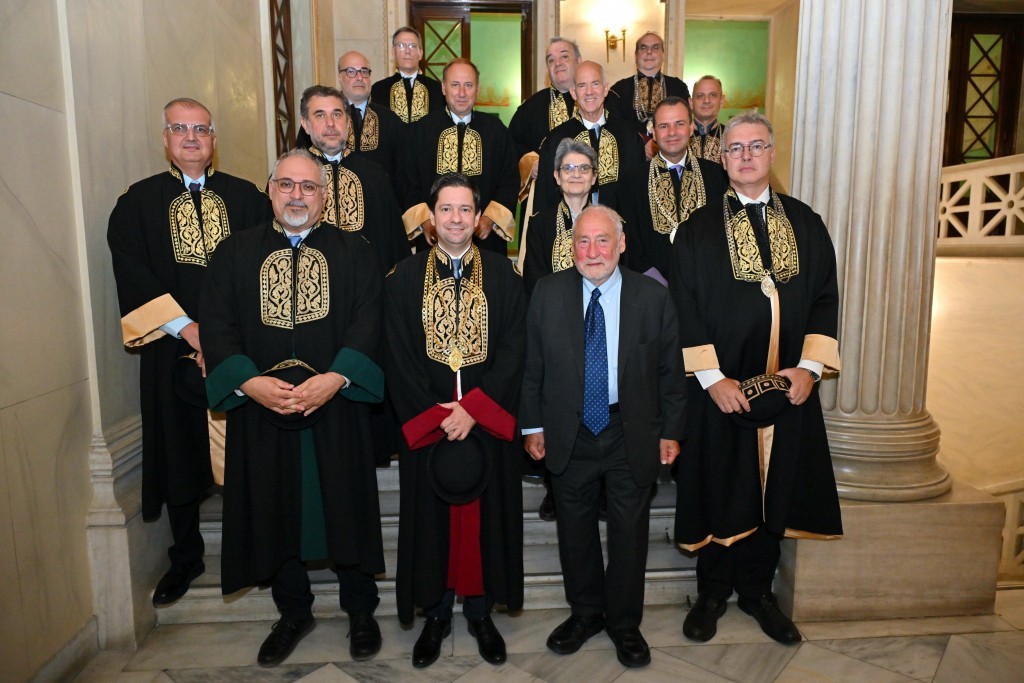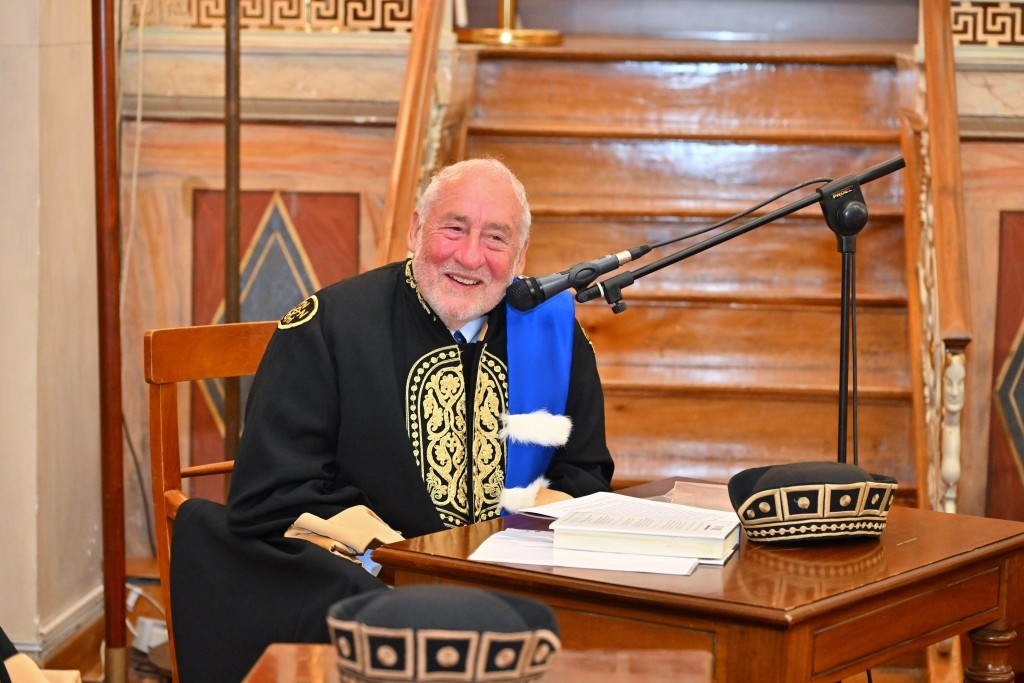The Nobel Laureate Joseph Stiglitz receives the title of doctor honoris causa of the NKUA’s Department of Economics

Professor Joseph Stiglitz won the Nobel Prize for Economics in 2001 for laying the foundations for the theory of markets with asymmetric information.
Joseph Stiglitz is not only an acclaimed economist. He is also a figure who has fundamentally shaped how we understand contemporary economies and their challenges. His work and presence have considerably influenced global economics, social justice, and sustainable development. It is nevertheless his struggle for a more just society that makes Joseph Stiglitz stand out, as in his articles he opened the debate about global inequalities and highlighted the need for a new form of globalisation", said the Rector of the National and Kapodistrian University of Athens, Professor Gerasimos Siasos.
With over fifty years of academic and research activity, Joseph Stiglitz has earned international renown for his innovative thoughts and dedication to reducing social and economic inequities. His pioneering theory of markets with asymmetric information is one of the most important developments in the economic thought of the 20th century. The theory exposes the flaws of traditional approaches, demonstrating that markets are not always efficient, and that imperfect information can lead to failures with dire consequences for society and its well-being.
Stiglitz has also been a global policymaker in serving as Chief Economist for the World Bank and Chairman of the US Council of Economic Advisers. His academic career at some of the world’s top universities (Yale, Stanford, Princeton, and Columbia), alongside his more than 40 honorary doctorates, reflects the professor’s impact on economic theory and practice at international level.

Stiglitz fiercely denounces the disparities that plague contemporary societies while advocating for progressive taxation, access to affordable healthcare, universal education, and decent housing for everyone. In addition, he has emerged as one of the most influential voices of reason in the worldwide discussion over climate economics. He frequently emphasises that modern economies must work under terms that ensure long-term viability without sacrificing social cohesion or environmental responsibility.
At the end of the awarding ceremony, the Nobel Laureate gave a speech entitled ‘Road to Freedom: Economics and the Good Society’.
Latest Highlights:
SUR's new transdisciplinary course provides a toolbox against gender violence
Marseille is gearing up to become the world capital of immunology
ULB commits to digital responsibility
SU researchers revolutionise construction by turning tree bark into high-performance coating
The University of Glasgow joins global slavery research project
